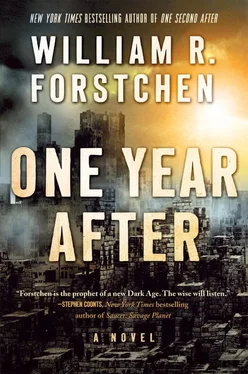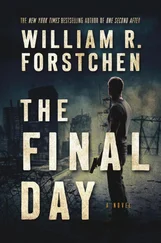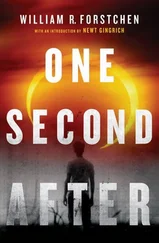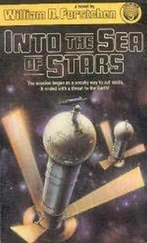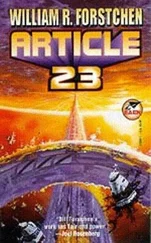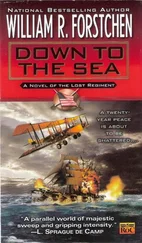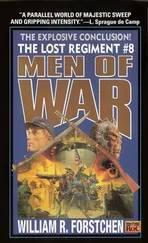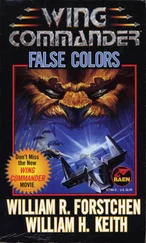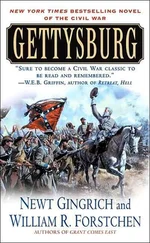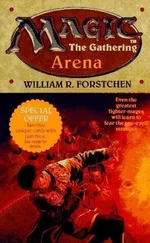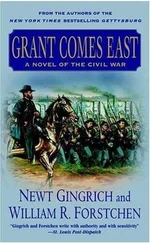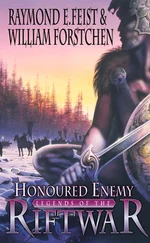He turned back to his radioman and clicked back on again. “Reserves, move to objective two, then hold in place.”
Within the half hour, he wanted them holding the southeast-facing pass of Interstate 240 cutting through Beaucatcher and the old tunnel of Tunnel Road.
John came up to Kevin and put a hand on his shoulder. “Pick out half a dozen of your best, and find the surviving reivers with us; they should be good at this. Give them fifteen minutes to rest and get something to eat, and then I want them to get up atop Beaucatcher Mountain, hunt down that mortar team and any observers, and take them out.”
Kevin nodded.
“And, Kevin, what was the butcher bill?”
Kevin sighed and shook his head. “Didn’t have much time to tally it yet.” He reached into his pocket and pulled out a cluster of dog tags that had been manufactured for every serving soldier in the town’s battalion, stamped with name, blood type, and next of kin. “I’ve collected eighteen of these so far.”
He offered them to John, but John did not take the burden. There would be time later after the fight was truly finished.
“Let’s see what we’ve captured,” John said softly, a reassuring hand on Kevin’s shoulder, “and what can be used immediately.” He looked at his wristwatch. It was ten past four local time. All of this in little more than an hour. Sunrise in another hour and a half, and then to the next step, which he prayed would end without another fight. “Where’s the captain we took prisoner?”
Malady gestured to where one of his troops was escorting the girl. Someone had tied her hands behind her back.
“Wake me at six, but I want to talk with her first.”
John went over to the prisoner, and as he approached, he drew out his pocketknife and snapped it open. At his approach with knife drawn, the prisoner looked terrified, and that reaction filled him with pity. The kid thought he was going to kill her.
“Deirdre, turn around, please.”
She just stood their gazing at him.
“Oh for heaven’s sake, Deirdre, I’m just going to cut your handcuffs off. Now turn around.”
She complied, still nervous, as he carefully sawed through the twist of rope that bound her wrists while telling the prisoner’s guard to get something to eat and relax.
Once freed, Deirdre turned back to face him, rubbing her wrists. “Thank you, sir.”
“I have your word you won’t try to bolt?”
“Yes, sir.”
“Fine, then. Now let’s go over to your food supply, find something to eat, sit down, and talk.”
He let her lead the way to where a small crowd was rummaging through shipping boxes stamped with the old FEMA logo containing old commercially packaged cans. He pulled out one stamped Bacon and Eggs and a plastic-wrapped packet of utensils. He motioned for her to lead the way, and she walked over to a small temporary cubicle.
“This was my bunk,” she announced as she sat down on the collapsible camp bed. He looked around. Pinned to the canvas wall that had offered her a modicum of privacy were half a dozen photos.
“Your family?” he asked, his gaze lingering on what was obviously her college graduation day.
She nodded.
“Mind if I look?”
“No, sir.”
He unclipped the photo and held it close, examining it with his flashlight. Deirdre was in the middle, beaming with pride, holding her diploma, a tall young man by her side, elderly couples to either side of them, several children in their early teens on both sides and standing in front of her. He forced a smile, yet another frozen memory of the time that was lost, and he respectfully handed the photograph to her. “Who is in the picture?”
She did not reply.
“If you don’t want to talk, Deirdre, I understand. I have a photo of my daughter in my wallet. She died from diabetes. It’s still hard for me to talk about.”
Deirdre looked at the photo, hands shaking slightly.
“That’s my parents to my right. My fiancé, Jim.” She paused. “He was going on to med school at Rutgers. Those are his parents. The kids are his younger brothers and sisters.”
He did not reply. Either she would end it with that or, in a moment, blurt out the rest.
“My parents owned a nursery for roses. I was helping them to run the business side of it.” She sighed and then chuckled. “What with the way developments had swept through the area, land value was through the roof. I kept telling them to sell the place; they were sitting on millions, but they loved their rose business. When everything hit the fan, it was only a matter of days before we got looted. As if a dozen acres of a rose farm actually had anything of value to keep you alive. That’s when Daddy got killed.”
She continued on, falling into a monotone, a recounting of the horrors that to John had become all so familiar, the story of survivors, repeated over and over in a flat, emotionless tone, the story of a nation going into collapse.
She and her mother managed to scratch by until the first winter, thanks to a small garden. Fending off other groups of looters, killing a rapist, not being so successful with killing the second one until after he fell into a drunken sleep, waiting for her fiancé to show up but never hearing from him again, her mother dying of pneumonia the first winter… it was a somber, ten-minute recounting of horrors spoken of without emotion.
“When I heard of the ANR, they had set up a recruiting station in Princeton. I joined. I actually believed their line that they were helping to rebuild America, and besides, it was a couple of real meals a day, and frankly, it was safety, as well. They were taking anyone who walked through the door voluntarily. An hour later, they said I’d make officer. I went into a training camp at the university campus, and it darn near felt like heaven at first. A warm building, real food… I actually put ten pounds back on within a month, and then they shipped us out.
“My first tour of duty was guarding the approach out of New York City. My unit was down in Hoboken with orders to shoot anyone trying to get across the river.”
“What?”
She gazed at him and shook her head. “Didn’t you hear, sir? Plague, ebola—you name it—was rampant on the other side of the river. Rumor was there was still a hundred thousand or so living in the wreckage. It was medieval, the way the city was still burning. Hard to believe anything could still be found to burn. Those trying to get out we were ordered to shoot on sight.”
“And did you?”
She sighed. “At first, I couldn’t. Tried warning shots. They’d be in rafts, small boats, even some trying to swim across. But after a while, it was them or us.” She lowered her head.
“Yeah, I helped shoot them. We were told if any of us even touched one of them, we would be shot, as well.” She looked up at him. “What would you have done, sir?”
He had no reply for her question. “Go on, tell me the rest.”
“After that my unit was pulled with orders to report to Bluemont for special training.”
He sat up a bit at the mention of Bluemont. At last, someone who had actually been there other than Fredericks.
“What did you see? Did you meet the new president? Is the government really up and functioning?” The eagerness in his voice was obvious.
She sighed and shook her head. “I didn’t see anyone other than our trainers. Our unit was there for a month of advanced infantry training in urban combat. Sorry, sir, but that’s all I saw.”
He sat there silent, frustrated.
“We thought it weird. I mean, I had some interest in history, even thought of majoring in it in college. Old films of presidents and generals talking with troops. Morale boosting and all of that. We just went into an encampment in a town nearby that any surviving civilians had been cleared out of and practiced taking buildings. Rumors were that we were going to be sent to the Midwest. No one wants to go to Chicago, Cleveland, Pittsburgh, and that had us worried.”
Читать дальше
